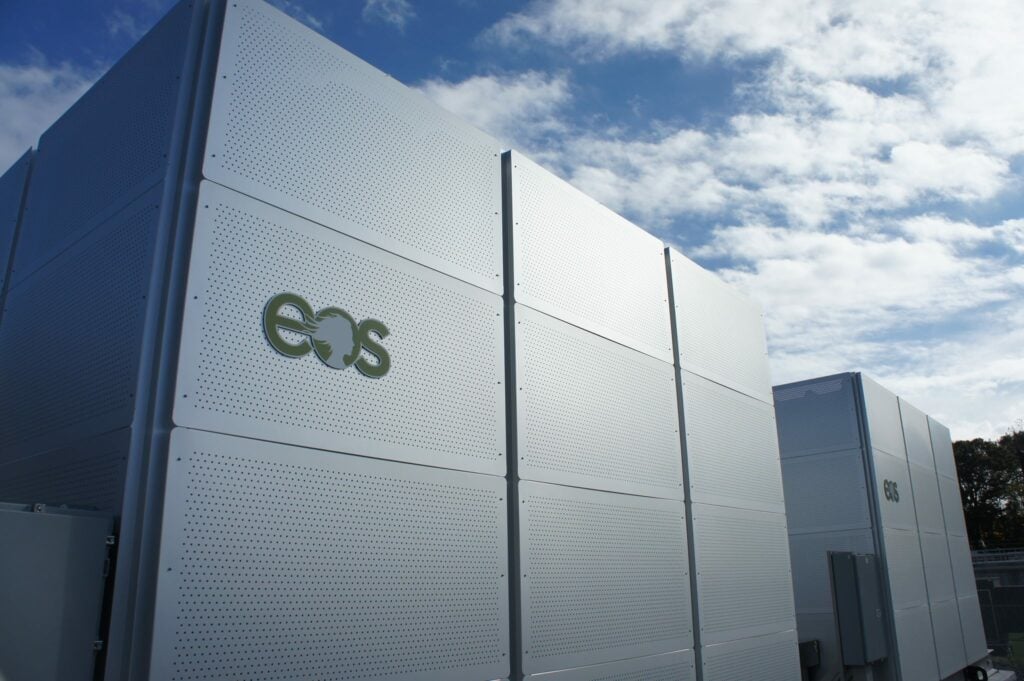
Zinc battery energy storage system provider Eos Energy Enterprises finished 2021 with an order backlog of US$148.7 million and a net loss for the year of US$124.2 million.
The company booked revenue of US$4.6 million for the year and expects that to grow ten-fold to US$50 million in 2022, just from its existing orders backlog, nearly a quarter of which it says is future recurring services revenue. It reckons it will reach profitability by H2 2023.
Enjoy 12 months of exclusive analysis
- Regular insight and analysis of the industry’s biggest developments
- In-depth interviews with the industry’s leading figures
- Annual digital subscription to the PV Tech Power journal
- Discounts on Solar Media’s portfolio of events, in-person and virtual
Its total costs over 2021 were US$139.3 million and it finished the year with US$105.7 million in cash or cash equivalents. The company claims an opportunity pipeline of US$4 billion and aims to capitalise on 10% of that, in new orders, this year.
Eos Energy is one of those expanding US-based battery manufacturing capacity. It will invest US$25 million in expanding its Turtle Creek manufacturing facility in Pittsburgh, Pennsylvania, to 800MWh. Manufacturing first time yield is approaching 90%, it added.
The Department of Energy recently invited the company to apply for a loan to support the expansion of the facility. Some US$10 billion of loans are in process for battery manufacturing projects in the US, the DoE says.
The company is one of several long-duration energy storage providers to have listed in the US at a relatively early storage of commercialisation, going public via a SPAC merger in November 2020 shortly after it struck long-term agreements to supply 1.5GW of its battery systems in the US. It has also received orders from India.
Its market cap sits at US$211 million at the time of writing, with an enterprise value around US$220 million.
Eos Energy Enterprises’ technology
The company’s batteries have a duration of up to three hours but can be stacked to create up to 12 hours of discharge potential.
Eos Energy’s technology employs a zinc-halide oxidation/reduction cycle packaged in a sealed, flooded, bipolar battery. It says the battery technology offers a safe, scalable, fully recyclable and sustainable alternative to lithium-ion and requires just five core commodity materials “derived from non-rare earth and non-conflict minerals that are abundantly available and fully recyclable”. The battery is non-flammable.
The company says its storage system’s use cases include peak shifting and demand management. It claims its battery use 100% depth of discharge without increased degradation while lithium-ion uses tends to need to limit this to 80-90% due to the impact of accelerating on its degradation rates. It says its battery’s degradation rate at 100% is lower than lithium-ion’s at 80%.
Another benefit it claims is low maintenance and minimum auxiliary load, with no need for a HVAC or fire suppression system meaning lower costs. Other uses cases are integrating solar and wind generation and providing ancillary services to the grid.






